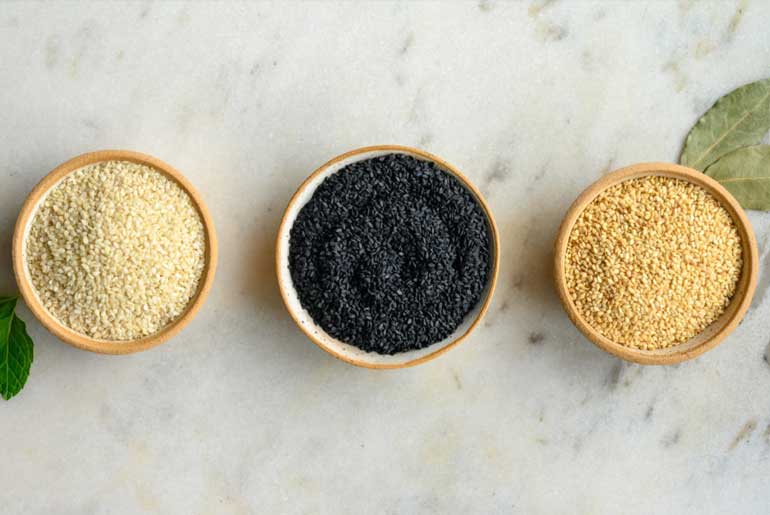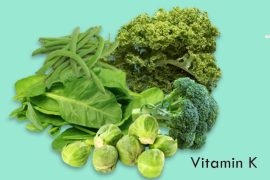Sesame seeds, commonly known as til in India, are versatile additions to a range of winter snacks, from traditional laddoos to savory fritters. Beyond their delightful taste, these tiny superfoods offer health benefits that can help ward off chronic diseases. In the midst of biting cold, sesame seeds emerge as a crunchy, flavorful, and aromatic comfort food, beloved by many in the Indian subcontinent. Whether incorporated into sweet treats like til ke laddoo or chikki or used to enhance the flavor of crispy fritters, burgers, or toast, sesame seeds stand out as nutritional powerhouses that elevate the overall appeal of a dish.
The significance of sesame seeds extends back through the annals of history. According to Assyrian legend, it is believed that the Gods indulged in wine made from sesame seeds during the creation of the world. In Ayurveda, the ancient Indian system of medicine, both white and black sesame seeds are acknowledged, with the latter often praised for its superior quality. The reverence for sesame seeds isn’t confined to India; their fascinating journey spans across the Middle East, Africa, and Asia, where they were highly prized.
Sesame seeds hold a historical distinction as one of the earliest crops processed for oil and among the first condiments. Their cultural and culinary significance is deeply embedded in ancient traditions, making them not just a flavorful ingredient but a symbol of heritage and health across diverse regions.
Health Benefits Of Sesame Seeds:
- Cholesterol Lowering: Sesame seeds, or til, contain unique compounds like sesamin and sesamolin, which are known for their cholesterol-lowering properties. These compounds may contribute to the prevention of high blood pressure.
- Laxative Properties: Cephalin, a phospholipid found in sesame seeds, has various medical and pharmaceutical applications. It is mildly laxative, emollient, and demulcent, making it beneficial for digestive health.
- Skin Health: Sesame seeds are beneficial for the skin as they enhance moisture and warmth. Rich in anti-inflammatory properties, they can aid in preventing skin infections and contribute to overall skin health.
- Dental Health: Sesame seeds have properties that help in removing dental plaque, promoting good oral health. Regular consumption may contribute to maintaining dental hygiene.
- Cancer Prevention: Sesame oil, derived from sesame seeds, contains a significant amount of linoleate in triglyceride form. This component has been suggested to selectively inhibit the growth of malignant melanoma, potentially contributing to cancer prevention.
It’s worth noting that while sesame seeds offer these potential health benefits, individual responses can vary. Additionally, it’s essential to incorporate a variety of foods into a balanced diet for overall health.
Add sesame seeds to the diet:
Adding sesame seeds to your diet during the winter can be a delightful and nutritious way to enjoy their nutty flavor. Here are some simple and creative ways to incorporate sesame seeds into your winter meals:
- Sprinkle on Salads:
Toss a handful of sesame seeds onto your salads just before serving. The nutty crunch will add texture and flavor to your fresh greens. You can combine them with other seeds and nuts for a more diverse mix.
2. Stir into Hot Soups:
Stirring sesame seeds into hot soups, whether vegetable, chicken, or lentil-based, can enhance the overall texture and flavor of the dish. This is a quick and easy way to introduce a nutritious element to your comforting winter soups.
3. Add to Baked Goods:
Incorporate sesame seeds into your baking recipes for an extra layer of nutrition. Sprinkle them on top of bread, rolls, muffins, or even into cookie and granola recipes. This not only boosts the nutritional content but also adds a delightful crunch to your baked goods.
4. Make Sesame Seed Bars or Balls:
Combine sesame seeds with other ingredients like honey, nuts, or dried fruits to make energy bars or bite-sized balls. These make for convenient and tasty snacks during the winter months.
5. Toast and Garnish Hot Dishes:
Toast sesame seeds lightly in a dry pan and use them as a garnish for hot dishes like stir-fries, rice bowls, or roasted vegetables. The toasting process enhances their flavor and aroma.
6. Blend into Smoothies:
Add a spoonful of sesame seeds to your morning smoothies. They blend well and contribute a nutty undertone to your fruity or green smoothie creations.
7. Sprinkle on Hot Cereals:
Whether it’s oatmeal, porridge, or any hot cereal, sprinkle sesame seeds on top along with your favorite toppings like fruits, nuts, or a drizzle of honey.
8. Make Tahini:
Blend sesame seeds with a bit of oil to make homemade tahini, a versatile paste commonly used in Middle Eastern cuisine. Use tahini as a spread, dip, or as an ingredient in various recipes.
Remember, the key is to experiment and find what works best for your taste preferences. Sesame seeds not only add nutritional value to your meals but also bring a comforting and warming element to your winter dishes.
Interesting facts about sesame seeds:
Sesame seeds have a rich cultivation history that spans over 3,000 years, demonstrating their adaptability and resilience in various climates and cultures. More than just their nutritional benefits, sesame seeds play a role in promoting sustainable agricultural practices. Their cultivation is environmentally friendly, requiring minimal water compared to many other crops. This characteristic aligns sesame cultivation with eco-conscious farming, making it a sustainable choice for those seeking to reduce their environmental impact in agriculture.
Disclaimer:
The information contained in this article is for educational and informational purposes only and is not intended as a health advice. We would ask you to consult a qualified professional or medical expert to gain additional knowledge before you choose to consume any product or perform any exercise.








